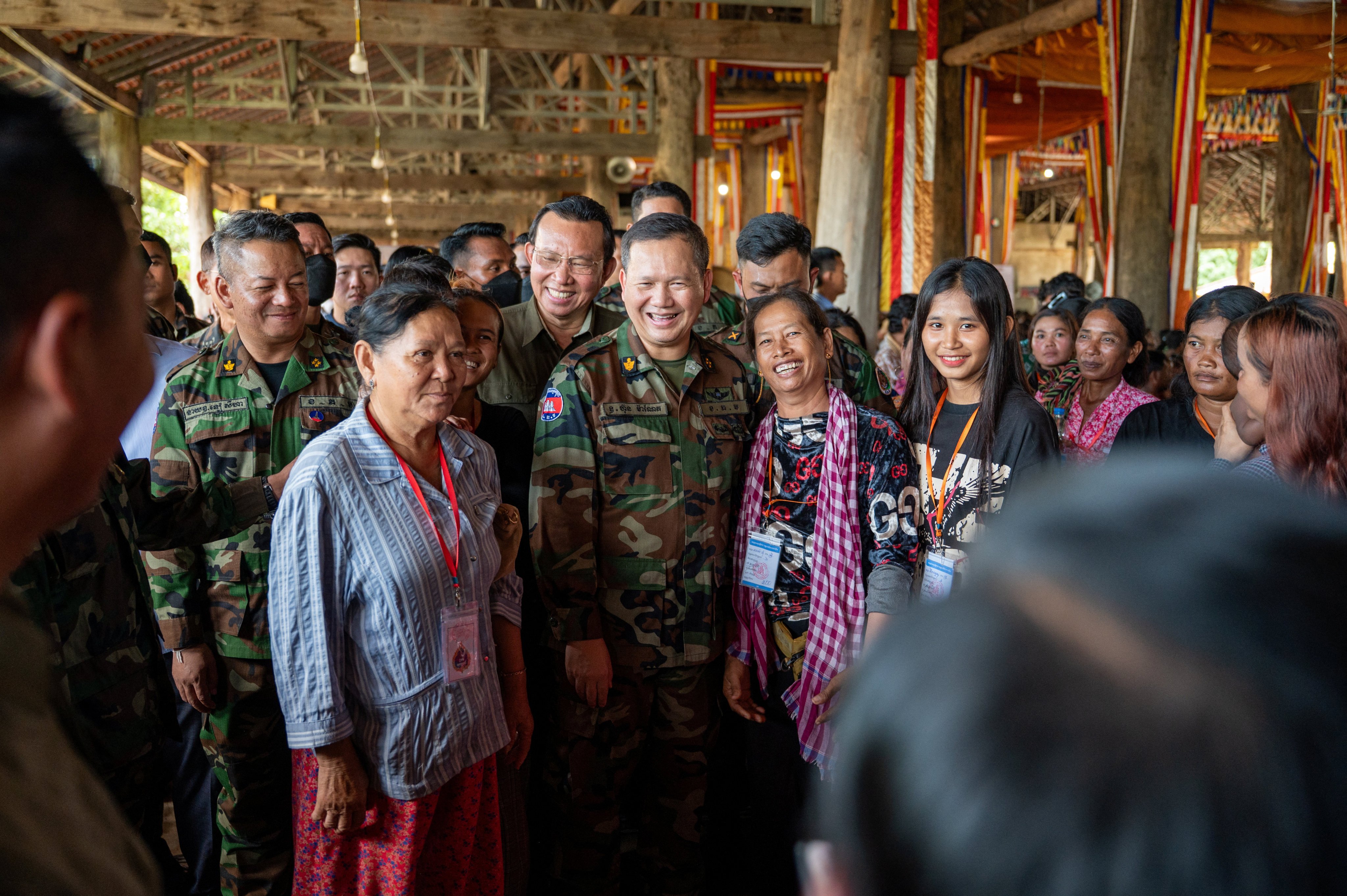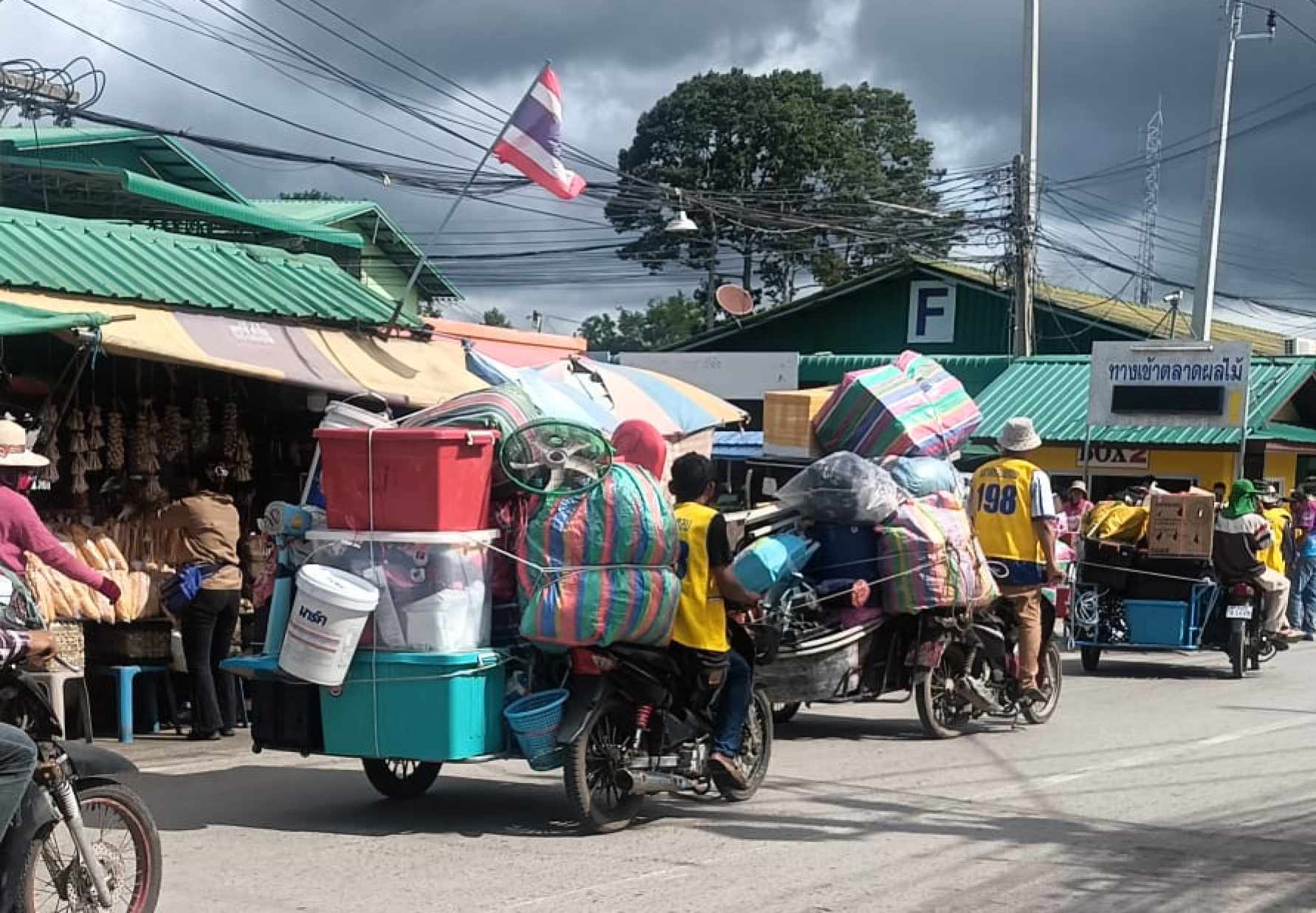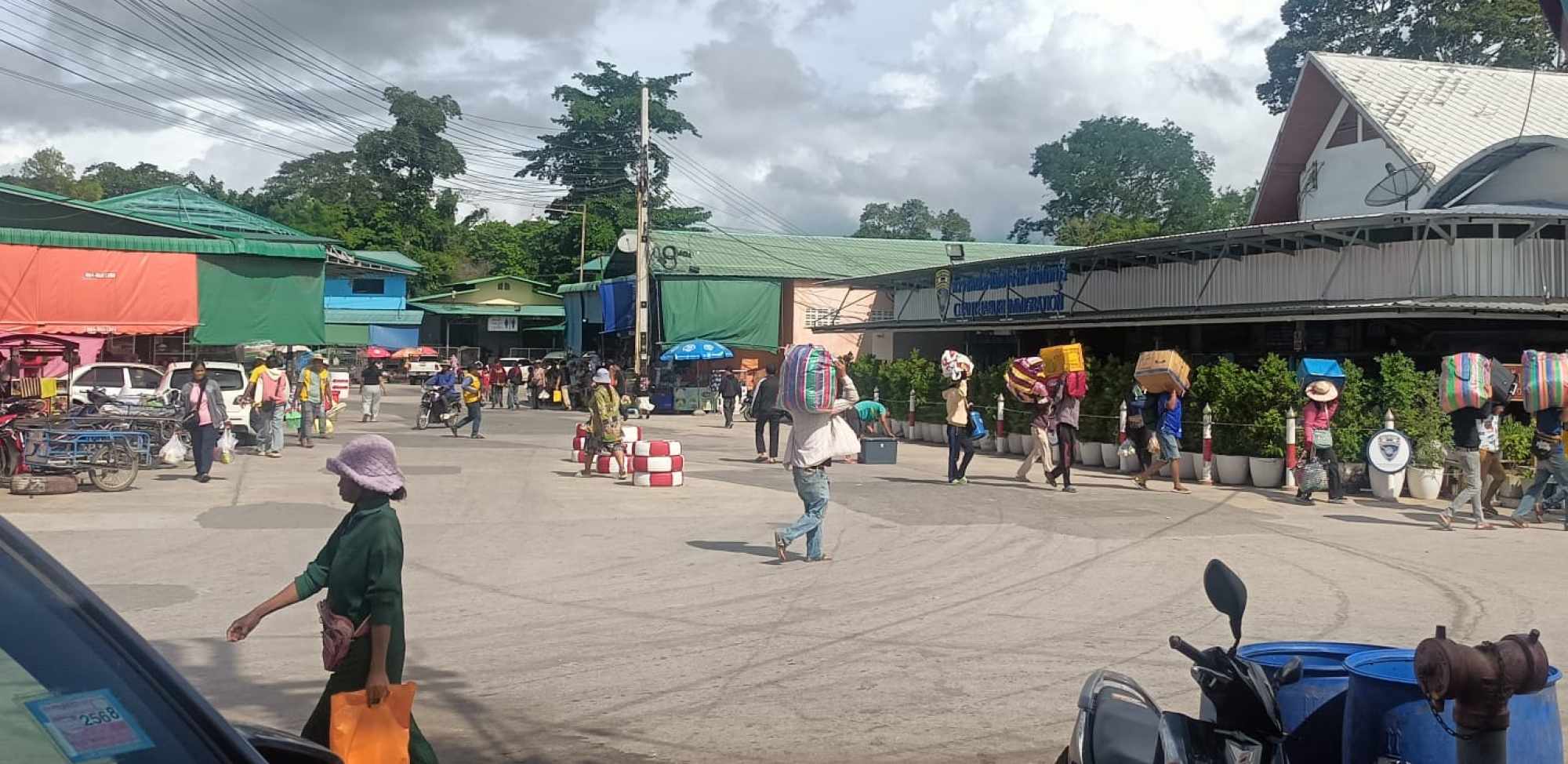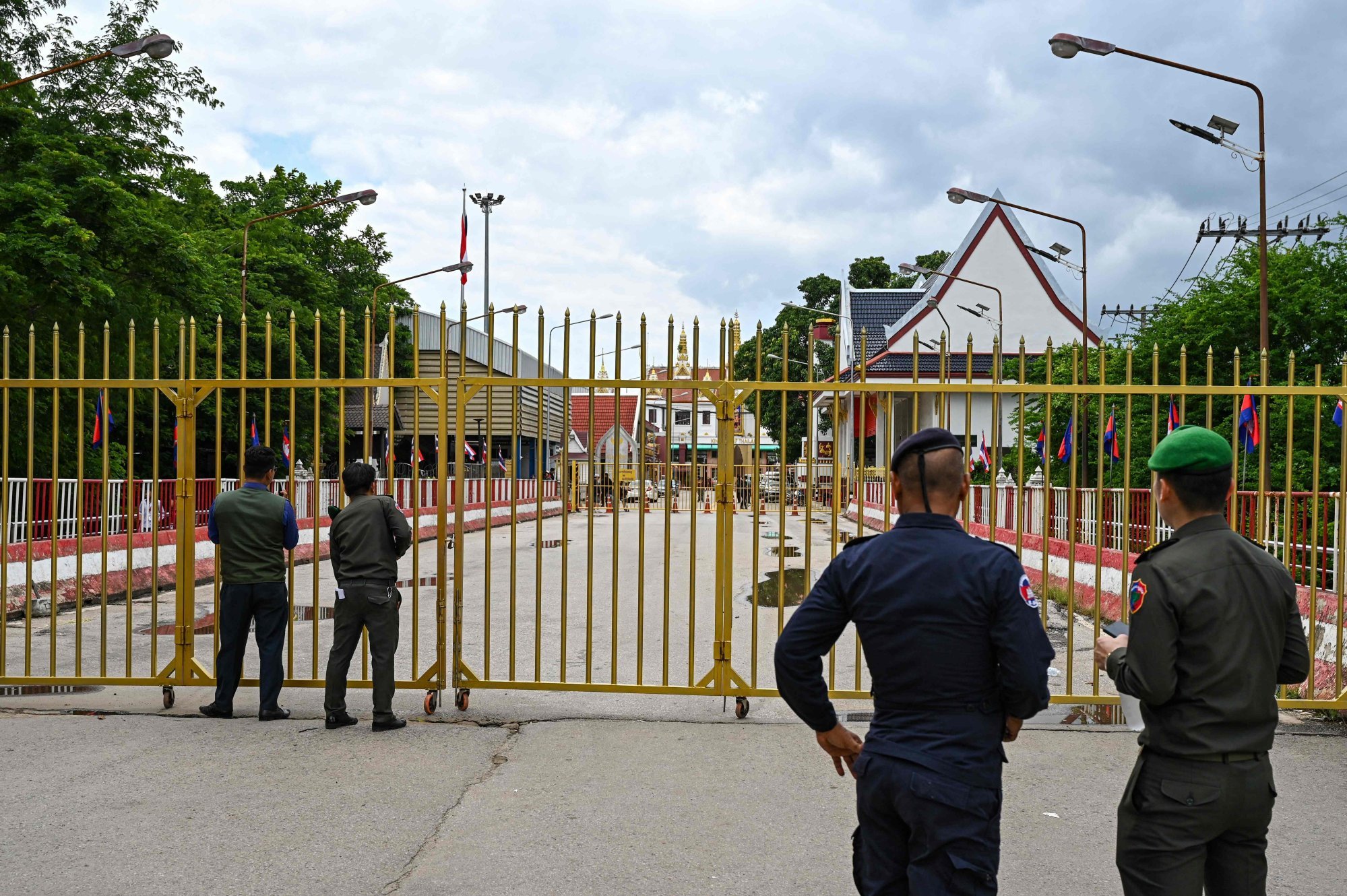Cambodian workers in Thailand caught in crossfire of nationalist war
More than 1 million Cambodian workers fear the damaging impact of a worsening row between Bangkok and Phnom Penh

From Cambodian cassava being blocked for sale in Thailand to a ban on Thai fuel flowing the other way, a border spat stoked by nationalists on both sides has left more than 1 million Cambodians working in Thailand exposed to a damaging fallout.
Over 5,000 Cambodian workers returned each day last week, fearing border closures and a growing nationalist enmity inside Thailand, Cambodian officials have said.
On Monday, Hun Manet, Cambodia’s prime minister and the scion of the Hun Sen dynasty, which has dominated the country for over three decades, visited a temporary camp at a border area pagoda in Preah Vihear province in support of returned migrant workers.
“Cambodia doesn’t want to see war break out because we’re used to swimming across it,” Hun Manet posted on his Facebook page. “But we can’t stand to be abused.”
The row began in late May after a Cambodian soldier was shot dead by Thai troops in a firefight that Bangkok said was triggered by an incursion on Thai soil – a claim denied by Cambodia.

Since then, leaders of the two countries have traded allegations, closed borders and stopped the flow of certain goods, while citizens in both nations urge boycotts and trade insults online.
Cambodia has also taken the border dispute to the International Court of Justice, seeking its adjudication on long-disputed territorial boundaries – enraging Thailand, which flatly rejects any internationalisation of the issue.
The row came to a boil last week after a leaked conversation between Thai Prime Minister Paetongtarn Shinawatra and ex-Cambodian prime minister Hun Sen sparked a political crisis in Thailand.
In the call, Paetongtarn called Hun Sen “uncle” and appeared to denigrate a Thai border commander, exposing her to accusations of being too deferential to the Cambodian strongman, who was a close friend of her political clan.
In the nationalist fury that followed, a key coalition ally left Paetongtarn’s government.
As Paetongtarn scrambles to defuse the outcry, she has taken a tougher line with Cambodia, closing more border posts and on Monday cutting fuel and other logistics to cyber fraud centres known to operate in the frontier area.
Behind the tit-for-tat measures targeted for domestic political consumption, Cambodia’s migrants in Thailand numbering more than 1 million are increasingly anxious about their status.
“There are Thai extremists telling workers to return to their homeland,” said Loeung Sophon, who represents migrant workers in Thailand for the Cambodia-based labour NGO Central.
“Some Cambodian workers said that where they live, the landlord also said that Cambodian workers will have problems if Thai soldiers and Cambodian soldiers fight each other … they worry that a war can happen as the conflict is getting more tense day by day.”
Thailand depends on low-paid migrant workers from Cambodia, Laos and Myanmar to staff factories and the construction, fishing and farming industries.
But many Thais look down on the millions of workers from abroad, an attitude which erupts during bouts of nationalist tensions.
Neither Thailand nor Cambodia can afford the current spat.
More than US$10 billion of bilateral trade hangs in the balance at a crucial time for both nations, as tariffs imposed by Washington threaten the growth of their already struggling economies.
Cambodian migrant workers remitted nearly US$3 billion last year, with nearly 90 per cent of them working in Thailand.

Stoking nationalist fury
Hun Manet has harnessed the simmering nationalist sentiment, making defiant posts on his Facebook page.
Emotions were easy to stir and draw on centuries-old fears of losing territory to more powerful neighbours, said Sok Kanitha, a media personality behind “The Kanitha Show”, a popular Khmer-language news analysis channel on YouTube.
Thai online rhetoric was insulting to Cambodians, with some even calling their neighbours “slaves” but Sok doubted there would be an escalation towards war.
Still, the verbal vitriol continued – mostly online but potentially with “collateral damage” to Thai-associated businesses or products in Cambodia – she said, adding that Cambodia appeared more united on the issue than Thailand.
“Imagine, you are the weaker, less developed nation. Then you have a neighbour that is an economic juggernaut that pretty much says to you, ‘hey you, you better not take that case to the ICJ or I will cut off your electricity, internet, tourists’,” Sok said.
“This kind of attitude pretty much set the fuse on Cambodian national sentiment. Like, how dare you? Cambodia would rather starve than have you disrespect us.”

Cambodians were largely supportive of their government’s actions so far, said Kin Phea, director of international relations at the government research institution the Royal Academy of Cambodia.
“Cambodians view protecting this heritage as a fundamental duty, making it a unifying national cause … distinct from other international issues,” he said.
Ou Virak, founder of the Future Forum think tank, said some social media users might feel it was a civil duty – or even a job requirement – to show their nationalism online.
“If you’re working with the government or working with certain audiences, you might be posting on social media to satisfy the national audience, to say that you’re also a nationalist or support a nationalist cause,” he said.
But for the migrant workers who depend on cross-border trade, whether remitting money to support their children or to pay off loans in Cambodia with their salaries from Thailand, the price of the flare-up of nationalism is heavy, according to Virak.
“I fear for the migrant workers, because whatever they choose, to come back or whether to stay in Thailand, their lives are pretty much unstable. They don’t know what’s next.”